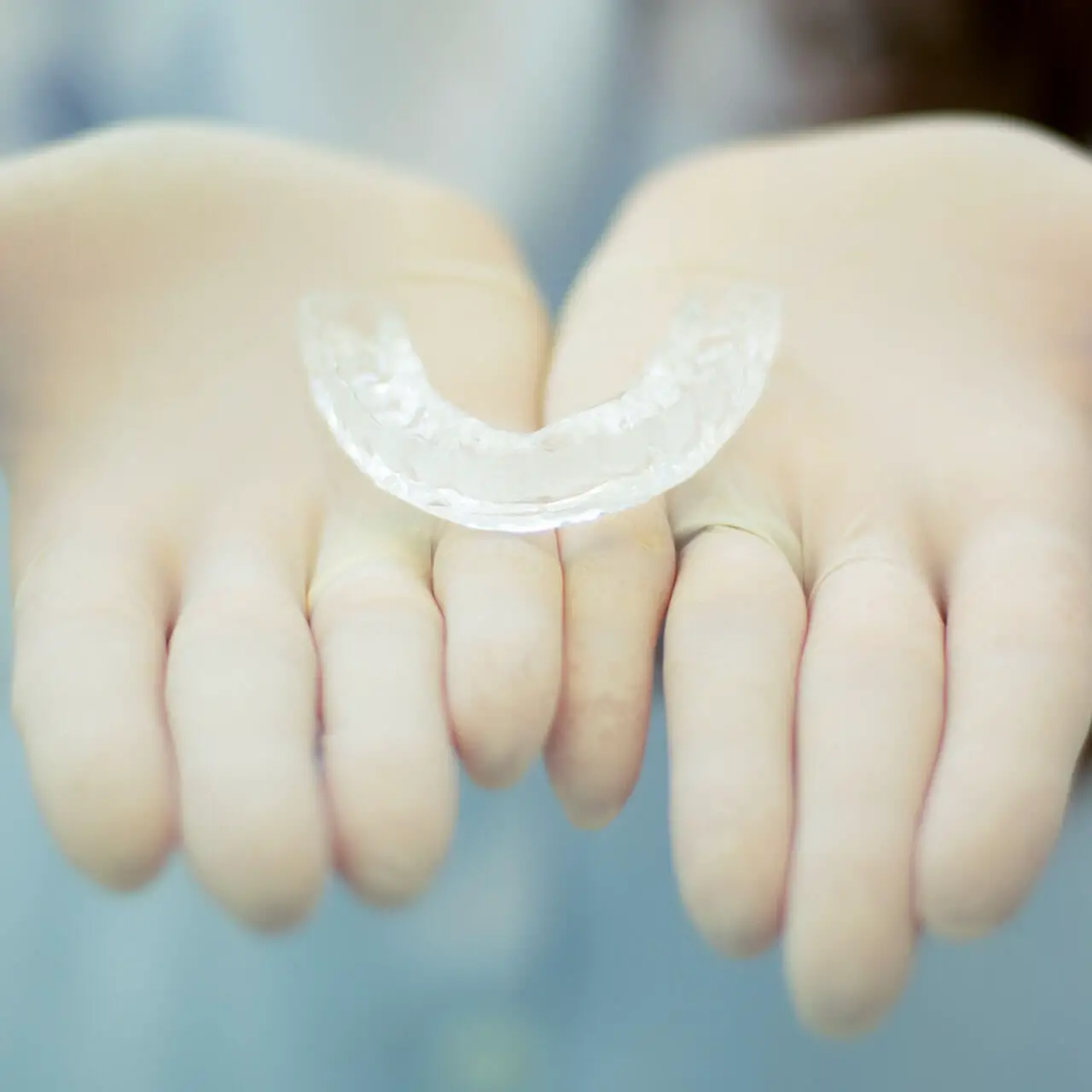You’ve spent time, effort, and not to mention, money, to get that perfect smile. The last thing you want to do is to compromise it, whether by losing your retainer in the deep end or causing it unnecessary damage. This is a common dilemma faced by many who are in the process of orthodontic treatments.
While you might be tempted to just take the plunge, think about what’s at stake. Your retainer is a critical part of your orthodontic journey, and preserving its condition should be a priority.
Can you really swim with your retainers in? Will the chlorine in the pool harm your retainer? We answer questions like this and more below, so keep reading on to find out.

Can I swim with my retainers in?
Technically you can swim with your retainers in, but it’s generally not recommended by orthodontists. There’s a risk of the retainer becoming loose and being lost in the water. Moreover, it’s also possible to accidentally swallow the retainer, which can be dangerous.
Furthermore, the chemicals used in pools, including chlorine, can potentially damage your retainer over time, causing it to become brittle or discolored. While one or two exposures might not cause significant damage, regular swimming with a retainer could shorten its lifespan. It is best to remove your retainer before swimming in a chlorinated pool.
Could I lose my retainer while swimming?
Yes, there is a high risk of losing your retainer while swimming. The water movements can dislodge your retainer, causing it to fall out. If you’re swimming in a large body of water or a public pool, it could be very difficult, if not impossible, to retrieve.
Will wearing a retainer impact my swimming performance?
Wearing a retainer is unlikely to have a significant impact on your swimming performance. However, it might cause discomfort, especially during intense physical activity, and could potentially dislodge during vigorous swimming, leading to the aforementioned risks of loss or swallowing.
How can I keep my retainer safe while I’m swimming?
When you’re swimming, it’s best to remove your retainer and store it in a protective case. Choose a brightly colored case that is easy to spot, and keep it in a secure place where it won’t get lost or accidentally thrown away.
Can I wear a mouthguard and retainer at the same time while swimming?
Generally, it’s not recommended to wear a mouthguard and a retainer at the same time. Most mouthguards are not designed to fit over a retainer, and trying to wear both could cause discomfort and potential damage to the retainer and your teeth. If you play a water sport that requires a mouthguard, it’s best to discuss this with your orthodontist to explore options.
Is it safe to swim in the sea with my retainer?
Swimming in the sea with a retainer carries similar risks as swimming in a pool – namely, the possibility of losing the retainer in the water or swallowing it.
Except, at least a pool is shallow enough, with enough water clarity, to see the bottom, so retrieval of your lost retainer is possible. The same cannot be said of the sea. Additionally, the salt water could potentially cause damage or discoloration to the retainer over time.
What are the risks of swimming with a retainer?
The main risks of swimming with a retainer are loss of the retainer in the water, the potential choking hazard if the retainer is accidentally swallowed, and damage to the retainer from pool or sea water.
Are there special types of retainers that can be worn while swimming?
There are no specific types of retainers designed to be worn while swimming. Retainers are typically intended to be removed while eating, drinking anything other than water, and participating in activities where they could be lost or damaged, including swimming.
How do I clean my retainer after swimming?
If you have swum with your retainer, rinse it thoroughly with fresh water as soon as possible afterwards. Use a soft toothbrush to gently brush the retainer and remove any residual chlorine or salt. Avoid using hot water as it can warp the retainer. Then, soak the retainer in a proper cleaning solution as recommended by your orthodontist.
When you notice tartar (hardened plaque) forming on your retainer that you are struggling to brush off, I recommend soaking the retainer in lemon or lime concentrate. The acidic juices will soften the tartar, allowing you to brush it off easily.
Are there alternatives to wearing a retainer while swimming?
Yes, there are also plastic retainers, such as Invisalign Aligners. Even though plastic retainers are more resistant to chlorine and salt than retainers with metal components, the same risks apply of it getting dislodged and falling out or getting swallowed accidentally.
If you’re concerned about the time your teeth spend without a retainer while you’re swimming, speak with your orthodontist. They can give you a better idea of how much time without a retainer your teeth can tolerate, and they can suggest alternatives if necessary.
However, if your retainer can be removed and kept in a container, then you should probably do so while swimming.
Sources:
- https://smscomps.com/2019/02/24/can-you-go-swimming-with-metal-braces-or-retainers/
- https://www.realself.com/question/swim-invisalign-aligners
- https://fredericksburgorthodontics.com/blog/retainer-care/
- https://www.drssavagesabolvisser.com/retainer-dos-and-donts-what-you-should-and-shouldnt-do-when-you-have-a-retainer/

